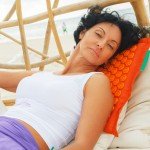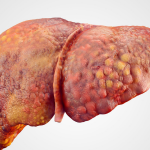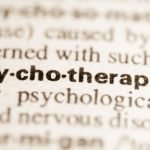Hydrotherapy Research: Cold Water Therapy and Increased Recovery Time
Cold Water Immersion Therapy for Musculoskeletal Maladies
A new study1 adds further evidence in support of the use of cold water immersion (CWI) therapy for musculoskeletal complaints. A research team from Brazil specifically looked at the ability for CWI to aid in the post-exercise recovery. The use of CWI as a recovery method is widely regarded as beneficial, especially by naturopathic physicians, however evidence on its use for this purpose is small. This study investigates the effects of CWI on muscle damage, perceived soreness and muscle power recovery in both upper and lower limbs. Jiu-jitsu training athletes were used in this study.
The Study
Within this study, physiological markers speak highly of the effects of CWI on muscle recovery, as well as perceived and objective performance measurements. Creatine phosphokinase, lactate dehydrogenase (LDH), aspartate aminotransferase, and alanine aminotransferase were all measured along with perceived muscle soreness, and objective recovery scales. Measurements were taken pre-training, post-recovery, 24 hours and 48 hours.
Athletes who utilized CWI after workout showed better post-training recovery
Circulating LDH levels 24 hours post recovery were lower than the control group (441.9±81.4 IU/L), and estimated muscle power was higher in the CWI group as well, in both upper limbs (757.9 ± 125.1W versus 695.9 ± 56.1 W) and lower limbs (53.7 ± 3.7 cm versus 35.5 ± 8.2 cm; both P values = .001). Perceived muscle soreness was also lower in the CWI group (1.5 ± 1.1 arbitrary units [au] versus 3.1 ± 1.0 au; P = .004) as well as a higher sense perceived recovery (8.8 ± 1.9 au versus 6.9 ± 1.7 au; P = .005).
Cold Water Immersion Therapy Could Weather the Storm
Though the study is underpowered, it still adds to the corpus of medical literature advocating hydrotherapy as an important element of clinical practice – that cold water can be used in a very powerful way to elicit physiologic responses. Studies such as this are important in supporting traditional naturopathic treatment protocols through an evidence-based lens.
Source:
- Fonseca LB, Brito CJ, Franchini E, et al. Use of Cold-Water Immersion to Reduce Muscle Damage and Delayed-Onset Muscle Soreness and Preserve Muscle Power in Jiu-Jitsu Athletes. J Athl Train. 2016;51(7):540-9. doi: 10.4085/1062-6050-51.9.01.
 Node Smith, associate editor for NDNR, is a fifth year naturopathic medical student at NUNM, where he has been instrumental in maintaining a firm connection to the philosophy and heritage of naturopathic medicine amongst the next generation of docs. He helped found the first multi-generational experiential retreat, which brings elders, alumni, and students together for a weekend campout where naturopathic medicine and medical philosophy are experienced in nature. Three years ago he helped found the non-profit, Association for Naturopathic ReVitalization (ANR), for which he serves as the board chairman. ANR has a mission to inspire health practitioners to embody the naturopathic principles through experiential education. Node also has a firm belief that the next era of naturopathic medicine will see a resurgence of in-patient facilities which use fasting, earthing, hydrotherapy and homeopathy to bring people back from chronic diseases of modern living; he is involved in numerous conversations and projects to bring about this vision.
Node Smith, associate editor for NDNR, is a fifth year naturopathic medical student at NUNM, where he has been instrumental in maintaining a firm connection to the philosophy and heritage of naturopathic medicine amongst the next generation of docs. He helped found the first multi-generational experiential retreat, which brings elders, alumni, and students together for a weekend campout where naturopathic medicine and medical philosophy are experienced in nature. Three years ago he helped found the non-profit, Association for Naturopathic ReVitalization (ANR), for which he serves as the board chairman. ANR has a mission to inspire health practitioners to embody the naturopathic principles through experiential education. Node also has a firm belief that the next era of naturopathic medicine will see a resurgence of in-patient facilities which use fasting, earthing, hydrotherapy and homeopathy to bring people back from chronic diseases of modern living; he is involved in numerous conversations and projects to bring about this vision.









